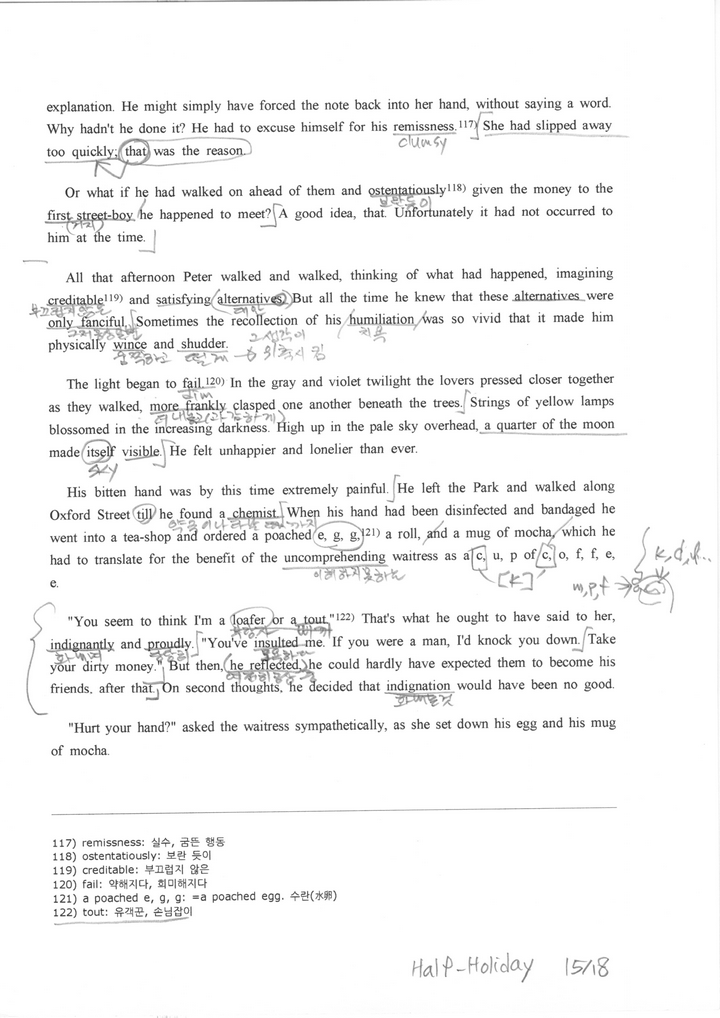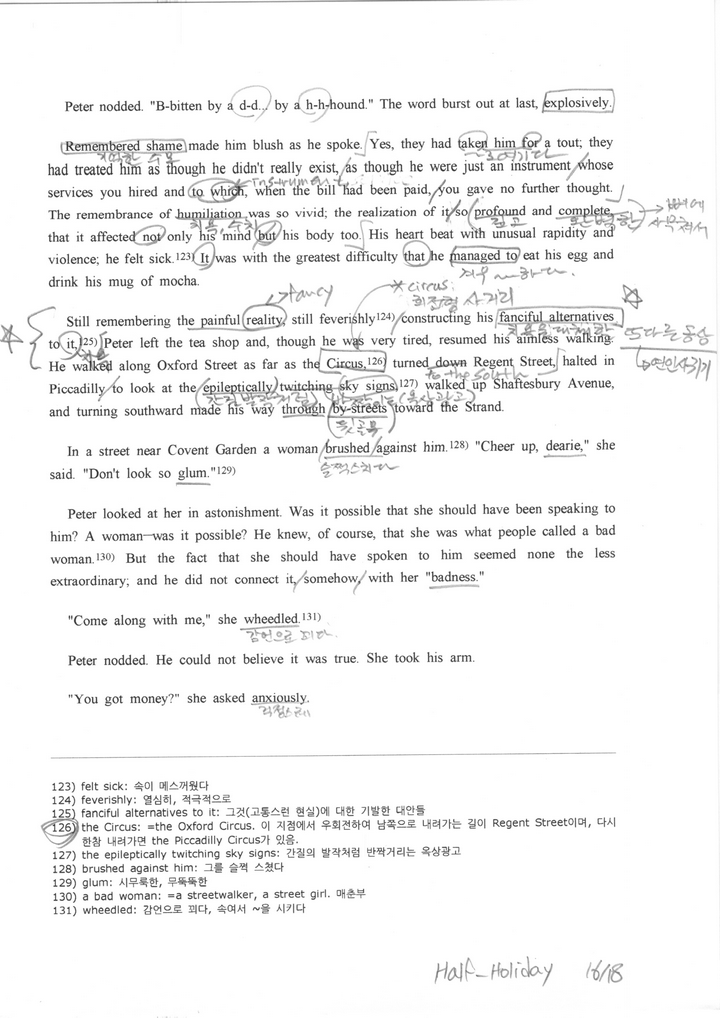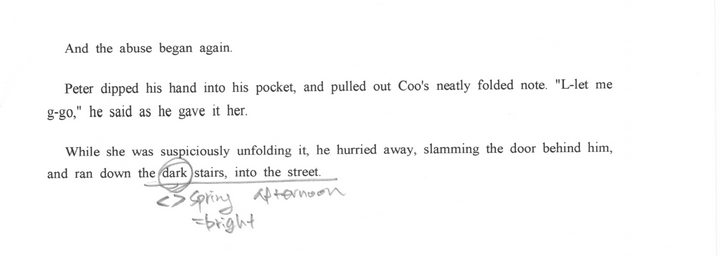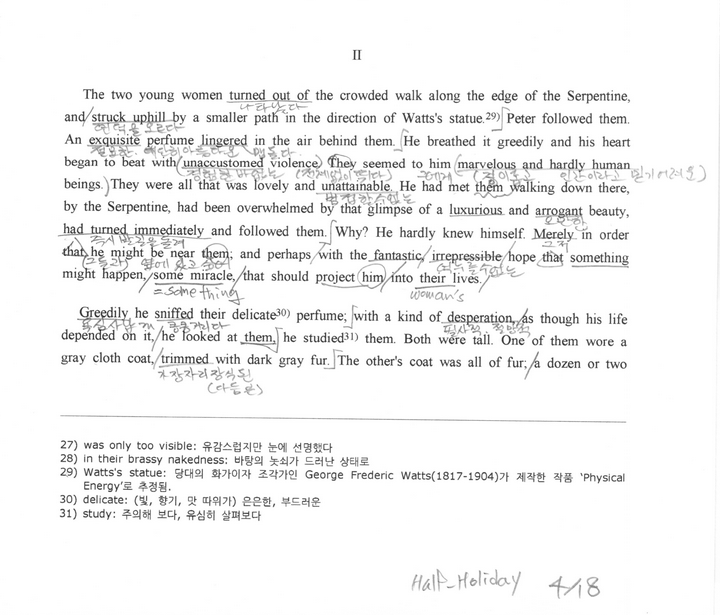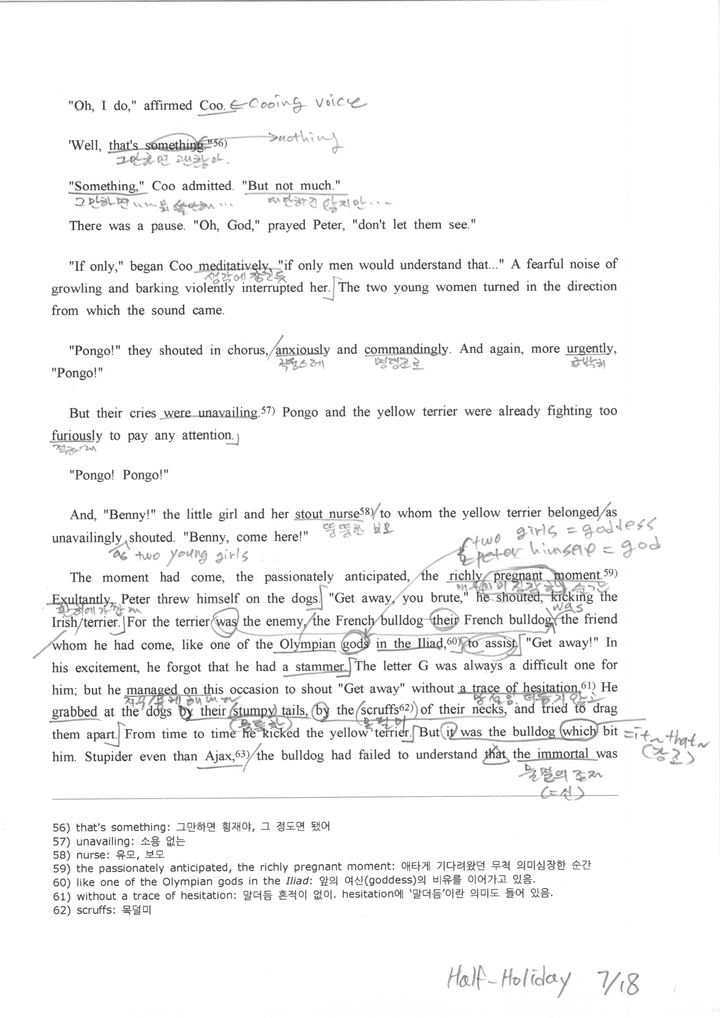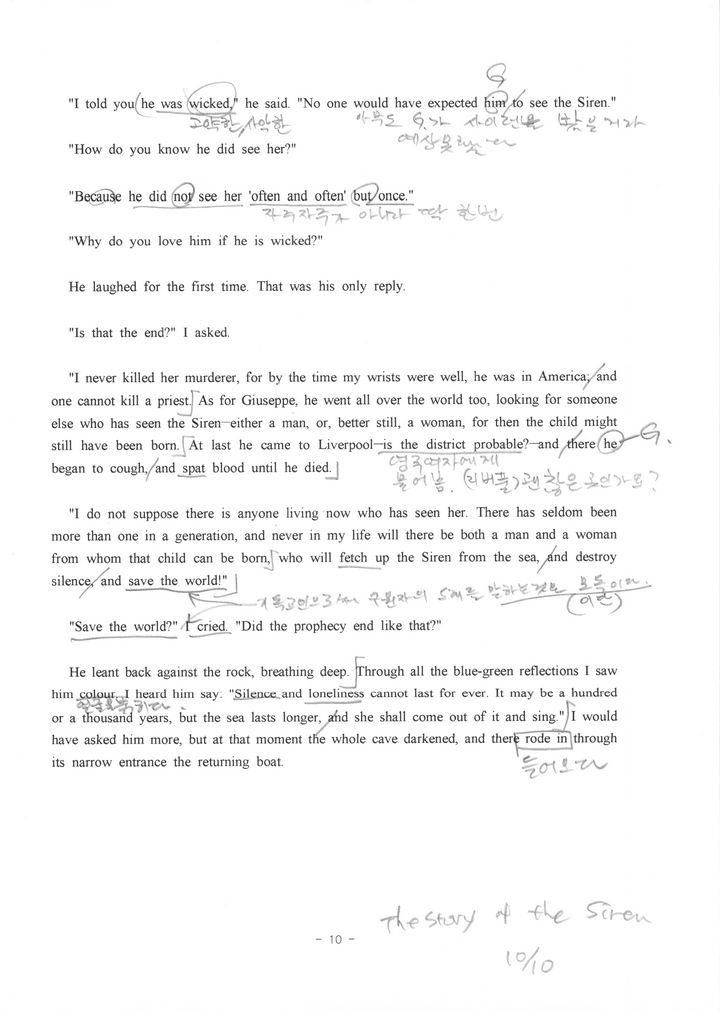Somerset Maugham

When I was a very small boy I was made to learn by heart certain of the fables of La Fontaine, and the moral of each was carefully explained to me. Among those I learnt was ‘The Ant and the Grasshopper,’ which is devised to bring home to the young the useful lesson that in an imperfect world industry is rewarded and giddiness punished.



In this admirable fable (I apologise for telling something which everyone is politely, but inexactly, supposed to know) the ant spends a laborious summer gathering its winter store; while the grasshopper sits on a blade of grass singing to the sun. Winter comes and the ant is comfortably provided for, but the grasshopper has an empty larder: he goes to the ant and begs for a little food. Then the ant gives him her classic answer:
"What were you doing in the summer time?"
"Saving your presence, I sang, I sang all day, all night."
"You sang. Why, then go and dance."

I do not ascribe it to perversity on my part, but rather to the inconsequence of childhood, which is deficient in moral sense, that I could never quite reconcile myself to the lesson. My sympathies were with the grasshopper and for some time I never saw an ant without putting my foot on it. In this summary (and, as I have discovered since, entirely human) fashion I sought to express my disapproval of prudence and commonsense.
I could not help thinking of this fable when the other day I saw George Ramsay lunching by himself in a restaurant.
I never saw anyone wear an expression of such deep gloom. He was staring into space. He looked as though the burden of the whole world sat on his shoulders. I was sorry for him: I suspected at once that his unfortunate brother had been causing trouble again. I went up to him and held out my hand.
"How are you?" I asked.
"I'm not in hilarious spirits," he answered.
"Is it Tom again?"
He sighed.
"Yes, it's Tom again."
"Why don't you chuck him? You've done everything in the world for him. You must know by now that he's quite hopeless."

I suppose every family has a black sheep. Tom had been a sore trial for twenty years. He had begun life decently enough: he went into business, married and had two children. The Ramsays were perfectly respectable people and there was every reason to suppose that Tom Ramsay would have a useful and honourable career. But one day, without warning, he announced that he didn't like work and that he wasn't suited for marriage.
He wanted to enjoy himself. He would listen to no expostulations. He left his wife and his office. He had a little money and he spent two happy years in the various capitals of Europe. Rumours of his doings reached his relations from time to time and they were profoundly shocked. He certainly had a very good time. They shook their heads and asked what would happen when his money was spent. They soon found out: he borrowed.
He was charming and unscrupulous. I have never met anyone to whom it was more difficult to refuse a loan. He made a steady income from his friends and he made friends easily. But he always said that the money you spent on necessities was boring; the money that was amusing to spend was the money you spent on luxuries. For this he depended on his brother George. He did not waste his charm on him. George was a serious man and insensible to such enticements. George was respectable.
Once or twice he fell to Tom's promises of amendment and gave him considerable sums in order that he might make a fresh start. On these Tom bought a motorcar and some very nice jewellery. But when circumstances forced George to realise that his brother would never settle down and he washed his hands of him, Tom, without a qualm, began to blackmail him.
It was not very nice for a respectable lawyer to find his brother shaking cocktails behind the bar of his favourite restaurant or to see him waiting on the box-seat of a taxi outside his club. Tom said that to serve in a bar or to drive a taxi was a perfectly decent occupation, but if George could oblige him with a couple of hundred pounds he didn't mind for the honour of the family giving it up. George paid.
Once Tom nearly went to prison. George was terribly upset. He went into the whole discreditable affair. Really Tom had gone too far. He had been wild, thoughtless and selfish; but he had never before done anything dishonest, by which George meant illegal; and if he were prosecuted he would assuredly be convicted. But you cannot allow your only brother to go to gaol. The man Tom had cheated, a man called Cronshaw, was vindictive.
He was determined to take the matter into court; he said Tom was a scoundrel and should be punished. It cost George an infinite deal of trouble and five hundred pounds to settle the affair. I have never seen him in such a rage as when he heard that Tom and Cronshaw had gone off together to Monte Carlo the moment they cashed the cheque. They spent a happy month there.
For twenty years Tom raced and gambled, philandered with the prettiest girls, danced, ate in the most expensive restaurants, and dressed beautifully. He always looked as if he had just stepped out of a bandbox. Though he was forty-six you would never have taken him for more than thirty-five. He was a most amusing companion and though you knew he was perfectly worthless you could not but enjoy his society.
He had high spirits, an unfailing gaiety and incredible charm. I never grudged the contributions he regularly levied on me for the necessities of his existence. I never lent him fifty pounds without feeling that I was in his debt. Tom Ramsay knew everyone and everyone knew Tom Ramsay. You could not approve of him, but you could not help liking him.
Poor George, only a year older than his scapegrace brother, looked sixty. He had never taken more than a fortnight's holiday in the year for a quarter of a century. He was in his office every morning at nine-thirty and never left it till six. He was honest, industrious and worthy. He had a good wife, to whom he had never been unfaithful even in thought, and four daughters to whom he was the best of fathers.
He made a point of saving a third of his income and his plan was to retire at fifty-five to a little house in the country where he proposed to cultivate his garden and play golf. His life was blameless. He was glad that he was growing old because Tom was growing old too. He rubbed his hands and said:

"It was all very well when Tom was young and good-looking, but he's only a year younger than I am. In four years he'll be fifty. He won't find life so easy then. I shall have thirty thousand pounds by the time I'm fifty. For twenty-five years I've said that Tom would end in the gutter. And we shall see how he likes that. We shall see if it really pays best to work or be idle."
Poor George! I sympathized with him. I wondered now as I sat down beside him what infamous thing Tom had done. George was evidently very much upset.
불쌍한 조지! 나는 그에게 동정심을 가졌다. 나는 그 옆에 앉아 톰이 몰래 저지른 짓(infamous thing)이 뭔지 궁금했다(wondered).
"Do you know what's happened now?" he asked me.
I was prepared for the worst. I wondered if Tom had got into the hands of the police at last. George could hardly bring himself to speak.
나는 뭔가 최악의 것을 예상 했었다. 톰이 마침내(at last) 경찰의 손에 넘어갔을지(got into the police) 모른다고 생각했다(wonder). 죠지는 말하는 것으로 좀처럼(hardly) 그자신을 끌어내지 못했다. [좀처럼 말을 꺼내놓지 못했다.]
"You're not going to deny that all my life I've been hardworking, decent, respectable and straightforward. After a life of industry and thrift I can look forward to retiring on a small income in gilt-edged securities. I've always done my duty in that state of life in which it has pleased Providence to place me."
"당신은 내 온 인생동안 내가 열심히 일하고, 품위있고(decent), 종경받을 만했고, 솔직 했다는 걸 부인하지 못할거야. 근면하고 절약하는 인생 끝에(after of a life) 금장 증권(gilt-edged securities=수익보장되는 증권)으로 작은 수익을 챙겨 은퇴를 앞두고(look forward) 있지. 신(Providence)께서 정해준 내자리(place me)에 만족하면서(has pleased) 나는 항상 내 임무를 해왔어."
"True."
"그랬지"
"And you can't deny that Tom has been an idle, worthless, dissolute and dishonourable rogue. If there were any justice he'd be in the workhouse."
"그리고 톰이 게으르고, 가치없고, 타락하고(dissolute), 창피한 깡패 였다는 걸 부인하지 못할거야. 정의란게(any justice) 있다면 그는 구호소(workhouse)에 있어야해."
"True."
"맞아"
George grew red in the face.
죠지의 얼굴이 붉어졌다.
"A few weeks ago he became engaged to a woman old enough to be his mother. And now she's died and left him everything she had. Half a million pounds, a yacht, a house in London and a house in the country."
"몆주전에 어머니뻘되는 늙은 여자랑 약혼을 했더군. 그리고 최근에(now) 그녀가 가진 모든걸 남기고 죽었어. 50만 파운드(현금), 요트, 런던에 집한채 그리고 시골에도 집한채가 있어."
George Ramsay beat his clenched fist on the table.
죠지 램지가 그의 꽉쥔(clenched) 주먹을 테이블 위에 두들겼다.
"It's not fair, I tell you; it's not fair. Damn it, it's not fair."
"불공평해. 내가 말하고 싶은게 그거야. 제길, 불공평 하다고."
I could not help it. I burst into a shout of laughter as I looked at George's wrathful face, I rolled in my chair; I very nearly fell on the floor. George never forgave me. But Tom often asked me to excellent dinners in his charming house in Mayfair, and if he occasionally borrows a trifle from me, that is merely from force of habit. It is never more than a sovereign.
나는 참을 수 없었다. 나는 죠지의 화난 면전에서 폭소(shout of laughter)를 터뜨렸다(burst into). (너무 웃겨서) 내 의자에서 굴러 바닥에 떨어질 지경이었다(nearly fall). 죠지는 나를 절대 용납하지 않았다(never forgive)[비웃은 사실을 맘속에 두고 있다. 찌질한 개미 죠지]. 하지만 톰은 가끔 나를 그의 메이페어에 있는 멋진 집에서 완벽한 저녁에 초대했다. 그리고 때때로 몇푼(trifle:사소한)씩 빌리곤 했는데(if) 그것은 그저 습관에서 나온 행동이리라. 그저 금화 한잎정도였다. [운좋게 부자가 되었지만 오히려 초심(?)을 지키는 베짱이 톰]



